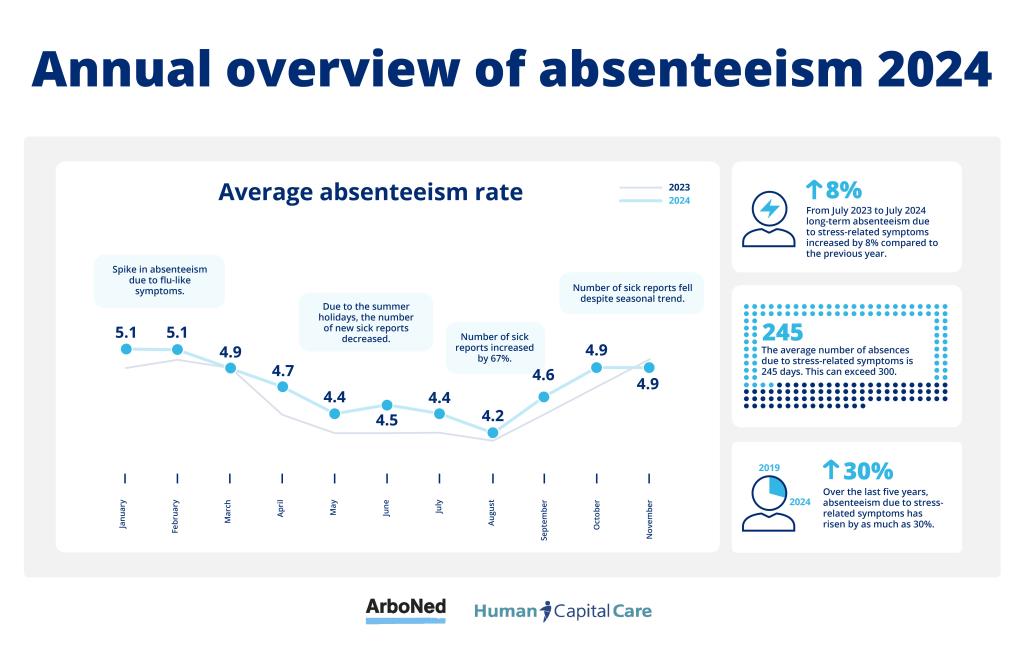Flu-like symptoms and stress the culprits of absenteeism in 2024

This is based on figures from the occupational health and safety service providers ArboNed and HumanCapitalCare, both part of HumanTotalCare and jointly serving
approximately 1 million employees. Looking back at 2024, health and safety services see that the biggest culprits behind absenteeism are flu-like symptoms and stress-related complaints.
According to Redmer van Wijngaarden, Director of Medical Affairs at ArboNed, the drop in the number of sick reports in November is surprising. “In the winter we actually usually see an increase. Just last year, the number of sick reports during this period rose from 72 to 82 per 1,000 employees. Now it has dropped from 70 to 65. This generally involves short-term absences due to flu-like symptoms, with most people recovering within a week.”
Absenteeism rates 2024: peaks and changing trends
Short-term sick leave was strongly influenced by flu-like symptoms this year. Van Wijngaarden: “The reasons for this are diverse. It could be because of a bad cold, the flu caused by the influenza virus or covid, for example. In early 2024, there was a spike in absenteeism due to these types of flu-like symptoms. An unexpected start, as this peak usually comes a month earlier in December. But from February onwards, sick reports rapidly declined again. The decline in the summer months was actually less pronounced, as flu-like symptoms caused a relatively higher number of absences than usual. That also coincided with a rise in the number of covid particles in the wastewater measurements taken by the Dutch National Institute for Public Health and the Environment (RIVM). In autumn, there was a notable increase in September. In that month, the number of sick reports due to flu-like symptoms increased by a whopping 67%. This trend continued into October, but unexpectedly gave way to a decline in November.
Stress-related complaints continue to rise
Short-term sick leave due to flu-like symptoms fluctuates throughout the year. If we look at long-term absenteeism (longer than 6 weeks) due to stress-related complaints, ArboNed and HumanCapitalCare see a clear increase. From July 2023 to July 2024, stress-related absenteeism increased by 8% compared to the previous year. Over the past five years, the increase has been as much as 30%. Currently, one in four sick days is caused by stress. Although the causes also vary in this case, more and more people have been experiencing stress-related complaints and the average length of absence from work was also slightly higher.
Prompt help from occupational psychologist makes a difference
“Stress complaints are often persistent,” Van Wijngaarden emphasised. “The longer you wait to address it, the greater the impact. And that’s a shame, because there’s something you can do about it. This includes sounding the alarm sooner and encouraging employers and employees to stay engaged in dialogue. If you can’t work it out together, seek professional help early on, for example from an occupational psychologist. It is often possible to get treatment there via the occupational physician within two weeks, while you may face long waiting lists with conventional healthcare avenues. Fortunately, more and more employers and employees are taking this path forward.”